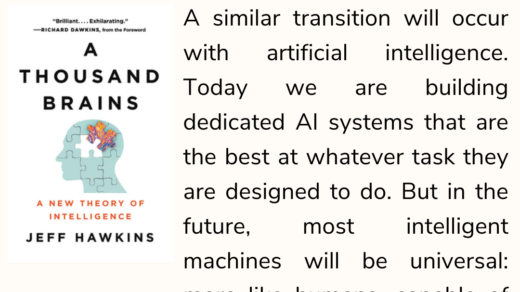Daily Tao – The Death of Expertise: The Campaign Against Established Knowledge and Why it Matters – 1
As a University College of London (UCL) study found, people don’t actually read the articles they encounter during a search on the Internet. Instead, they glance at the top line or the first few sentences and then move on. Internet users, the researchers noted, “are not reading online in the traditional sense; indeed, there are signs that new forms of ‘reading’ are emerging as users ‘power browse’ horizontally through titles, contents pages and abstracts going for quick wins. It almost seems that they go online to avoid reading in the traditional sense.” This is actually the opposite of reading, aimed not so much at learning but at winning arguments or confirming a preexisting belief. Children and younger people are especially vulnerable to this tendency. The UCL study suggested that this is because they “have unsophisticated mental maps of what the internet is, often failing to appreciate that it is a collection of networked resources from different providers,” and so they spend little time actually “evaluating information, either for relevance, accuracy or authority.” These youngsters “do not find library-sponsored resources intuitive and therefore prefer to use Google or Yahoo! instead,” because these services “offer a familiar, if simplistic solution, for their study needs.” Teachers and other experts are not immune from the same temptations. “Power browsing and viewing,” according to the study, “appear to be the norm for all. The popularity of abstracts among older researchers rather gives the game away.” “Society,” the UCL study’s authors conclude, “is dumbing down.”
One of the most concerning things to me, which is also a little ironic as I am sharing small fragments of what a book means in the form of passages. Each of us are capable of confirmation bias, and the internet as well as the increasing impatience that it has inculcated in many of us has led to many of us constantly searching the internet to support our beliefs. This is a concerning trend and it entrenches people’s viewpoints, hence increasing divisiveness and causing us to be more parochial in our mindsets.
To deal with it, I think many of us should actively seek to disconfirm our current viewpoints. While that may cause us to be tentative at times, this usually leads to more nuanced and better conclusions. Personally, I try to follow arguments from various perspectives, and try to understand the emotional aspects that may lead to me having a specific viewpoint. The desire to disconfirm my opinion also affects my book choices, as I try to read books that deal with various political or economic ideologies, to get a better rounded perspective on things.



